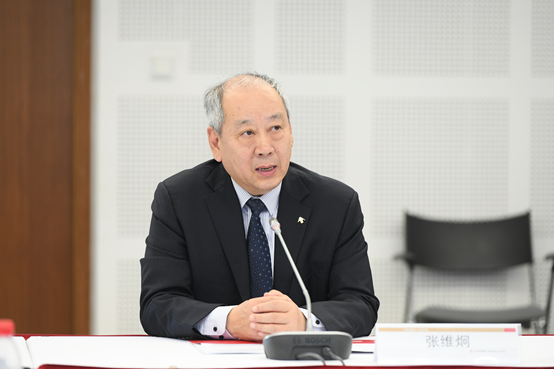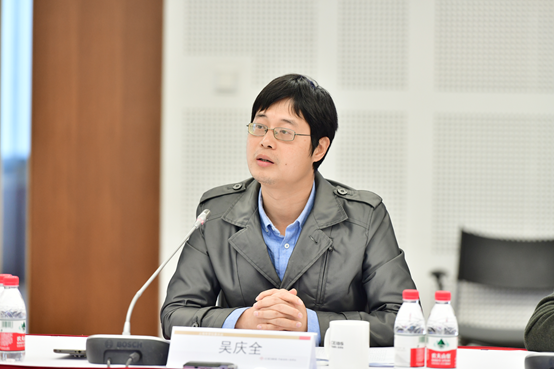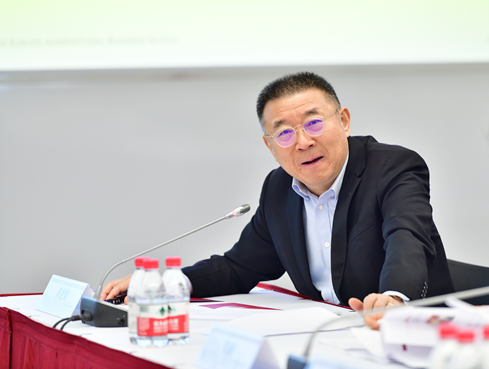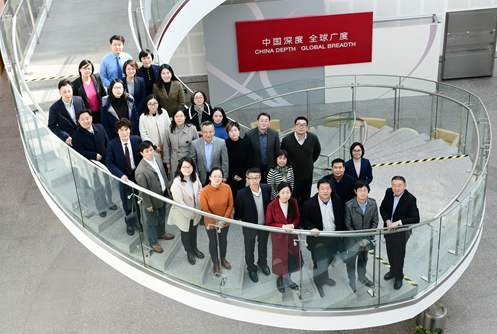CEIBS Hosts 6th Shanghai MBA Case Development and Sharing Platform Steering Committee Meeting
December 10, 2019. Shanghai – How to motivate teachers to engage in case development and teaching was one of the key issues discussed today by the Steering Committee of the Shanghai MBA Case Development and Sharing Platform during its sixth meeting at CEIBS.
A look back on the major progress of the platform and related project funding over the past two years was conducted during the session. Committee members also discussed key challenges in building the case library, such as how to encourage the submission and use of cases.
Principal Staff Member of the Shanghai Academic Degrees Office Mr. Wu Qingquan, Secretary-General of the Shanghai MBA Education Supervisory Committee Prof. Xu Xin, and representatives from 14 platform member schools also attended.
CEIBS Vice President and Co-Dean Prof. Zhang Weijiong noted during his welcome speech that the first phase of building the platform had concluded successfully thanks to the support of the Municipal Education Commission and the Shanghai Academic Degrees Office and Shanghai MBA Education Supervisory Committee. The platform collected many cases from member schools and made considerable progress this year, but it also ran into quite a few difficulties. Prof. Zhang He stressed the necessity of teachers investing substantial time and effort in developing high-quality cases. The ultimate goal, he said, is to develop the Global Platform of China Cases (ChinaCases.Org) into a top case library to match that of Harvard Business School or Ivey Business School, so as to benefit all peer institutions.

Vice President Zhang Weijiong delivered a welcome speech
During his speech on behalf of the Shanghai Academic Degrees Office, Mr. Wu Qingquan recognised the positioning of the platform and spoke highly of its construction and development. He also encouraged CEIBS and member schools to forge ahead and pool educational resources around Shanghai to build a world-class case library focused on management issues in China. Speaking of the second phase of construction, Mr. Wu said he hoped CEIBS could facilitate case sharing among higher education institutions in Shanghai to increase the usage, for example, by expanding the coverage of the platform from MBA to other degrees and from member schools to other schools in Shanghai. He added that the Shanghai MBA Case Development and Sharing Platform should build upon its achievements and leverage its global vision to develop a China-focused case library of global influence and nurture more business management talent for the economic and social development of Shanghai, the Yangtze River Delta, and the whole country.

Mr. Wu Qingquan delivered a speech on behalf of the Shanghai Academic Degrees Office
Director of the CEIBS Case Center Prof. Chen Shimin summarised the major progress of the project’s second phase over the past two years with a focus on six aspects. First, he noted that the case library has grown in size and has collected cases from a wide variety of sources. As of August 2019, ChinaCases.Org had accepted 1,306 cases from the School of Economics and Management of Tsinghua University, the platform’s member schools, other domestic and overseas schools. Second, the review process has been gradually improved to ensure better quality of case reviews. Third, diversified ways of case promotion have been adopted and such efforts are beginning to pay off. Fourth, the scope of case applications has expanded. So far, the platform has provided cases for over 2,000 teachers from 21 schools in mainland China, which have been used 130,000 times by students. As a result of strategic co-operation with Tsinghua University, the libraries of 110 mainland schools now enjoy access to this case library. Fifth, case training sessions have received rave reviews. The Case Master Development Camp has trained 14 classes of participants, attracting over 960 teachers from 260 schools in 20 countries and regions. The “Bringing the Case Method to Universities” campaign was also launched in 2019. The Platform joined hands with East China University of Science and Technology, SHU-UTS SILC Business School, and Nanjing University to organise “High-Quality Case Development and Teaching” activities, which were well received. Finally, government funding has been placed under special management and has been supplemented by CEIBS resources.

Prof. Chen Shimin chaired the meeting and introduced the project's progress
Prof. Chen concluded by raising several issues for discussion based on the challenges encountered by the project, such as how to motivate teachers, stimulate case submissions, and increase the usage of cases. He also called on committee members to offer suggestions on adjusting the award categories in the Global Contest for the Best China-Focused Cases, the remuneration standards for review experts, the new royalty system, and the priorities of work for 2020. The participants engaged in active discussion on these topics. The teacher incentive policy, in particular, received many practical suggestions from different teachers as they drew experience from their respective schools.
It is the shared aspiration of the representatives from member schools that the Shanghai MBA Case Development and Sharing Platform can catch up with the case libraries of Harvard and Ivey and become the first choice for high-quality teaching cases focused on management issues in China, so that it can contribute to the development of management education in Shanghai.













